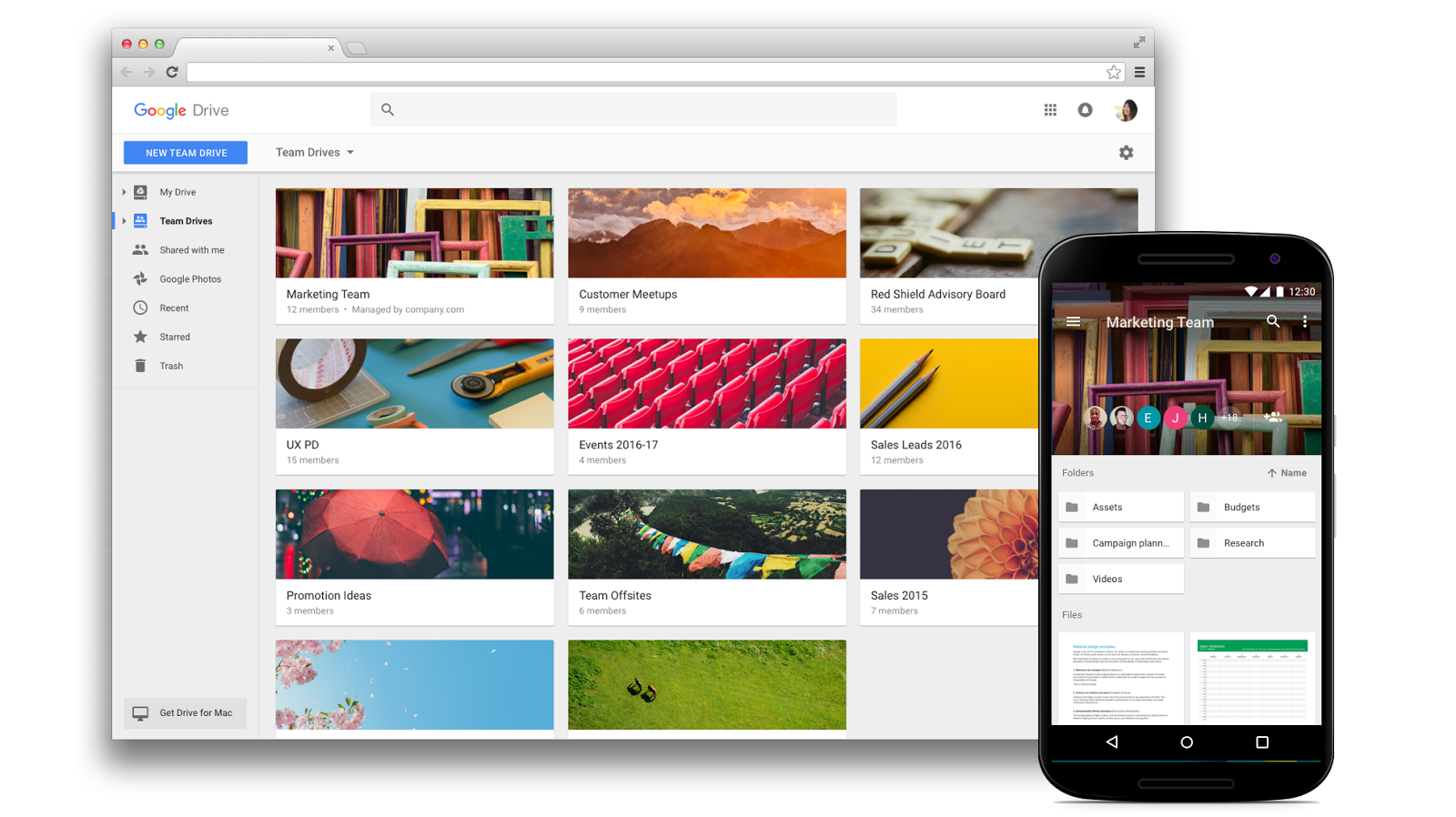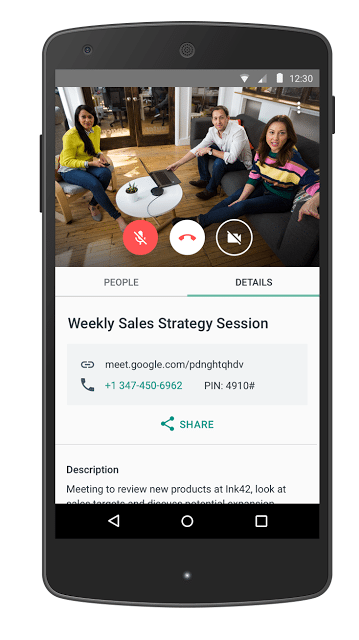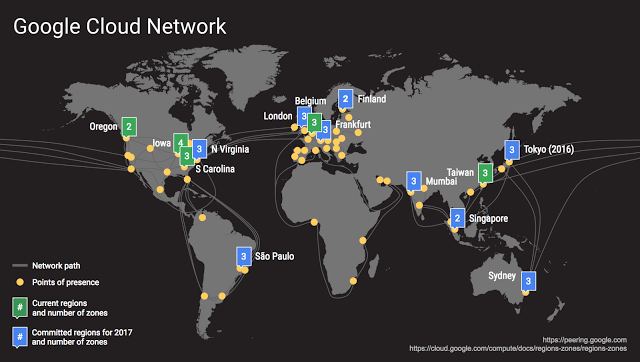Google Cloud, G Suite to be company's new flag-bearers for enterprises
Technology giant Google, has announced the Google Cloud, claiming it to be a unique and broad portfolio of products, technologies and services. The company has also renamed its user facing collaboration and productivity application –Google Apps for Work– as G Suite entailing all of its machine learning tools and APIs, the enterprise maps APIs; and the Android phones, tablets and Chromebooks that access the cloud.
According to the company, Google Cloud has been engineered in an enterprise appropriate way, with integrated systems that ensure service levels, where all components are integrated and meet the SLA for price points in accordance with the customer. It states that Google Cloud products are for customers of all sizes, from the self-employed and startups to large, multinational enterprises.
Diane Greene, Senior Vice President, Google Cloud said, “Google Cloud isn’t only the products. It’s also how we work alongside companies, in an engineering-centric way.”
 Taking video meetings into consideration for employees, a new meeting experience for Google Hangouts has been also under preview by the company. The new capability allows users to join from any device without the requirement of downloads, browser plugins, account or data connection since every meeting generates a short link and dial-in phone number so users can invite anyone.
Taking video meetings into consideration for employees, a new meeting experience for Google Hangouts has been also under preview by the company. The new capability allows users to join from any device without the requirement of downloads, browser plugins, account or data connection since every meeting generates a short link and dial-in phone number so users can invite anyone.
 The updated user interface, according to Google, accommodates up to 50 video participants, with integration into Calendar and instant screen sharing. Like Team Drives, the company will be extending this to more customers with an Early Adopter Program.
The updated user interface, according to Google, accommodates up to 50 video participants, with integration into Calendar and instant screen sharing. Like Team Drives, the company will be extending this to more customers with an Early Adopter Program.

“Because digital transformation and moving to the cloud are technical processes, we have customer engineers, customer reliability engineers, site reliability engineers, product engineers, all there to partner with our customers as they migrate, deploy and evolve. Our approach and our commitment to Google Cloud customers is simple: we’re in it together.”Showcasing how a cross-section of its clients and partners such as Snap Inc, Evernote, Telus, Airbus, Home Depot, Niantic Labs, Accenture and Pivotal use and work with the cloud, Google has also introduced a lineup of new technologies in the cloud, machine intelligence capabilities, and services.
Enter G Suite
Taking G Suite, for example, the new name for Google Apps for Work (Gmail, Docs, Drive, Calendar, Hangouts), which was launched a decade ago, designed for real-time collaboration is seeing a slew of new capabilities for time and team management on strategic and creative projects. Google claims that it has been driving machine intelligence research for over a decade and is powering more than one hundred product efforts, from instant translation to photo recognition. About a year ago, Smart Reply was launched that offered auto-generated replies for emails that only needed a quick response. The company states that now more than 10% of all replies on mobile are sent using Smart Reply. Looking at this, Google has been applying machine intelligence to all its suites across the board to make its products “smarter”.Smarter products
Storage: With Quick Access in Drive on Android, users can look at the most relevant files easily accessible in accordance to the work they are on. This is interestingly based on signals such as interaction with colleagues, recurring meetings and activity in Drive, machine intelligence helps Drive understand the rhythm of a user’s workday and offers the files needed. Google claims that its customer esearch shows that Quick Access saves about half the time an employee would spend finding a file. Documents: After the research capability in Google Docs, which integrated the search engine to docs, Google has added Explore in Google Docs. This integrates machine intelligence to automatically recommend related topics to learn about, images to insert and more content to discover within Docs. The company claims Explore in Docs can also be used to find a related document from Drive, cutting down on time taken to switch between documents. Spreadsheets: Some time back Google had launched Explore in Google Sheets to help users summarize data with automated charts and insights, only for those who had a technical know-how of the formulas to use. Now, using machine intelligence, the company has made a provision for users to ask questions using natural language and Explore in Google Sheets will use Natural Language Processing to translate the question into a formula and offer an answer. Presentations: Google has also added Explore in Google Slides that dynamically offers layout suggestions as users add their content. Google claims that it has seen users save 30% time they would have spent on formatting when they used this capability. Scheduling: Google Calendar now uses machine intelligence to help users easily find a time when invitees are free, and it also suggests available space based on previous bookings. It will also suggest times across the group to resolve clashes when there are many invites.Prabhakar Raghavan, Vice President Apps, Google Cloud said, “The best thing about these intelligent features is that they’ll continue to learn and improve over time the more they’re used, and save you even more time tomorrow than they save you today. You can apply this time to strategic planning, creative thinking and collaborative work with your team.”
Shifting focus from individual to teams
With mobility as a given, businesses have adopted Google Drive with a new emerging focus: teams. Google has been previewing Team Drives, which has shifted focus from the individual user to a focus on the team. The new capability, allows content ownership and sharing managed at the team level, and new roles give more granular control over team content. Team Drives claims to help streamline teamwork from end-to-end, from onboarding a new team member to removing a departing team member. Taking video meetings into consideration for employees, a new meeting experience for Google Hangouts has been also under preview by the company. The new capability allows users to join from any device without the requirement of downloads, browser plugins, account or data connection since every meeting generates a short link and dial-in phone number so users can invite anyone.
Taking video meetings into consideration for employees, a new meeting experience for Google Hangouts has been also under preview by the company. The new capability allows users to join from any device without the requirement of downloads, browser plugins, account or data connection since every meeting generates a short link and dial-in phone number so users can invite anyone.
 The updated user interface, according to Google, accommodates up to 50 video participants, with integration into Calendar and instant screen sharing. Like Team Drives, the company will be extending this to more customers with an Early Adopter Program.
The updated user interface, according to Google, accommodates up to 50 video participants, with integration into Calendar and instant screen sharing. Like Team Drives, the company will be extending this to more customers with an Early Adopter Program.
Geographical updates
The Google Cloud Platform claims to serve over a billion users across the globe and has joined the ranks of “Google’s billion-user products.” Taking from this achievement, the company has updated its infrastructure by announcing eight new Google Cloud Regions, namely; Mumbai, Singapore, Sydney, Northern Virginia, São Paulo, London, Finland and Frankfurt. Google states that these cloud regions will become publicly available throughout 2017.
